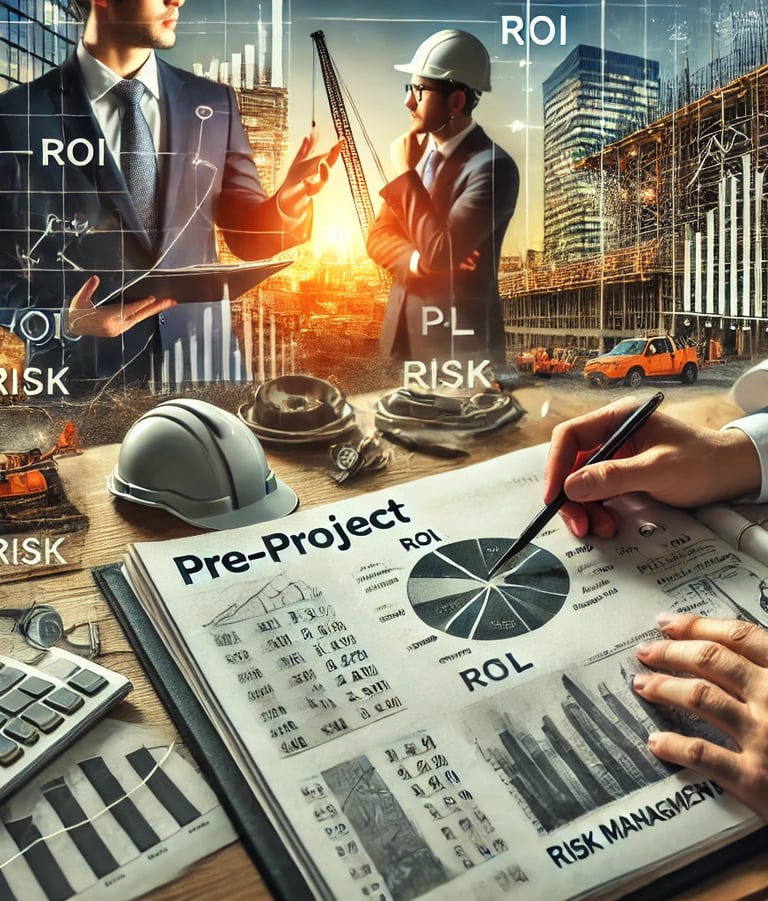Quality and technology IN CONSTRUCTION
delivered with STRAIGHT communication
Crisis Management (Financial, Technical)
Before the project begins, it is crucial to assess not only the construction costs but also the profitability of the development.
ROI and P&L calculations, along with RISK management specifically tailored for the project.
The construction industry is an extremely competitive and unpredictable field, where unexpected challenges can be commonplace. Managing such crises is essential for the successful execution of projects and the long-term stability of the business. Effective crisis management is built on two main pillars: addressing financial and technical issues.








In the construction industry, managing cash flow is crucial. It is important to conduct regular cash flow analyses, which help identify financial bottlenecks and enable quick responses
Cash Flow Management
Evaluating and managing the financial risks of projects is essential. This includes carefully reviewing contractual terms, establishing appropriate levels of budget reserves, and optimizing insurance coverage
In a crisis situation, having a pre-prepared liquidity plan is crucial, detailing how the company will address potential liquidity issues, including options for borrowing and stricter control of expenditures
Risk Management
Liquidity Plan
Financial Crisis Management






The use of innovative technologies, such as BIM (Building Information Modeling), can enhance project design and help reduce errors during the construction phase.
A dedicated crisis management team can be established specifically to address technical issues promptly. This team should be continuously trained in the latest construction technologies and methods.
Regular maintenance of equipment and machinery is essential to minimize unexpected failures and disruptions in workflows.
Technological Integration
Crisis Management Team
Proactive Maintenance
Technical Crisis Management
TOLDY CONSTRUCT
With over 20 years of experience in general contracting, our company specializes in the flawless execution of unique, bespoke buildings. Our innovative methods and mindset make us stand out in the market.
Our services
Contacts
company@toldyconsult.hu
+36 30 289 2383
© 2024. All rights reserved.
OUR WEBPAGES
www.toldyconsult.hu
